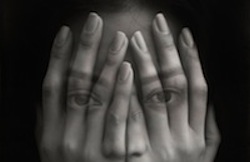 Session du troisième congrès international Euroacademia portant sur « Identities and Identifications: Politicized Uses of Collective Identities » ( Lucca, Italie, 19 et 20 mai 2015).
Session du troisième congrès international Euroacademia portant sur « Identities and Identifications: Politicized Uses of Collective Identities » ( Lucca, Italie, 19 et 20 mai 2015).
Identities are socially attributed imaginary significations. They are part of the dynamic projects of individual and social autonomy (C. Castoriadis). Nothing shapes, represents or reflects better the imaginary constructions of particular societies than arts. The artistic perception and practice are often identity making processes while the object of art can be a direct or indirect embodiment of experienced identities. At the outcome line of the process of artistic creation, the perception of the objects of art as oeuvre is an identification with cultural claims for specific aesthetic standards.
Art has a tremendous impact in indicating or shaping various dimensions of multilayered identities. Trough time art represented or influenced human visions of life and death, natural or supra-natural, meanings of life and daily practices, beliefs and their expression, history and change, places and differences. Art is simultaneously a process of building contextual cultural identifications and an instrument for cross-cultural dialogue. Arts supported the symbolic legitimating of various political orders and had an essential role in the creation of national identities. Arts shaped cultural aspirations and credos as an effective element of cultural innovation, change and openness to new. Through imaginary representations, art inserted divisions and differences among cultures and self-perceptions of people yet also opened the path of curiosity for the other and the emergence of trans-cultural dialogue. As artistic visions touched upon the most intimate identitarian representations of individuals and societies, they exercise a fundamental role in the developments and dynamics of identity making processes. Arts deeply touched on social and self-representation through sculpture and portraiture, on civic identities through defining social spaces in architecture or quotidian perceptions through design, on social or political allegiances through symbols, iconic objects and cultural diplomacy, on acting identities through theater, literature or performance arts, on the formation of transnational and global symbols. They exercised an essential impact on the formation of social memories or in addressing inclusion and exclusion nexuses for the marginalized or oppressed. Art is as well one of the important modes for asserting identities.
This panel addresses explicitly and invites the theoretical or applied studies that relate artistic manifestations with identity making processes. As the universe of reflection and research on the topics involved are virtually unlimited and impossible to anticipate in full diversity, we welcome contributions that add value or challenges to the discussion of the topic.
Some suggested topics for the panel are:
~ Art and identity: a bidirectional influence
~ Arts and the formation of social imaginary
~ Art as search for self-expression and identity
~ History, memory, art and identity: from literature to visual and performing arts
~ Renaissance and humanism influence on modern identity
~ Art and the creation of national identities
~ Modern art and novelty as a value
~ Portraiture and identity: from painting to sculpture and photography
~ Performing identities: identity and performance in literature, theatre and the performing arts
~ The body in art
~ Photography and identity making: from single images to serial portraits
~ Identity and migration or displacement in art
~ Alberto Giacometti and Constantin Brancusi: the human and the absolute
~ Picasso and Modigliani: images of a deeper self
~ Cindy Sherman: the nature of representation and construction of identity
~ Architecture and urban vision: from civic identities to globalization
~ Contemporary design and the visions of life and the self
~ Displaying allegiance: from ideological art to political symbols
~ Fashion and social staging of personal identity
~ Cinematography and identitarian representations
~ Art and cross-cultural dialogue
~ Art and post-colonialism
~ Art and search for recognition: expressing cultural heritage
~ Art, infinite reproduction and the global village
~ Museums, galleries and exhibitions: displaying identities
If interested in participating, please send a maximum 300 words abstract together with the details of your affiliation until 15th of May 2015 at application@euroacademia.eu
For full details of the conference and on-line application please see:
http://euroacademia.eu/conference/third-identities-and-identifications/

Leave a Reply
You must be logged in to post a comment.